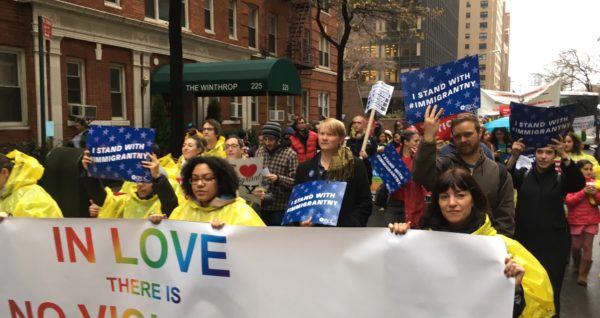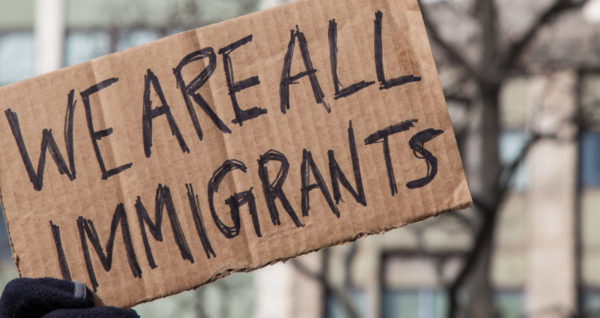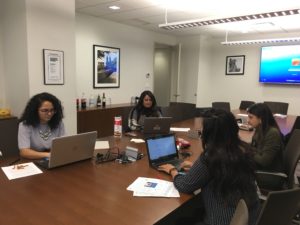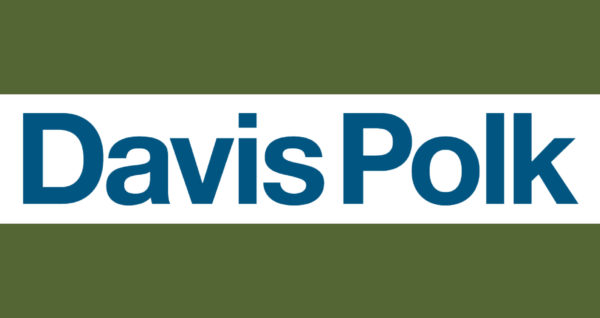Jamie Stinson is an associate in the Special Matters and Investigations practice in the New York office of King & Spalding. She is also a member of Sanctuary’s Pro Bono Council and Co-Chair of this year’s Above & Beyond Pro Bono Achievement Awards and Benefit.
—
At this year’s Above & Beyond Pro Bono Achievement Awards and Benefit, Sanctuary for Families is honoring a powerful and dedicated team from Cahill Gordon & Reindel LLP, including Partner Joel Kurtzberg and Associates Kerry Burns and Kathleen Farley, for their successful representation over two years in Manhattan Family Court of an immigrant victim of domestic violence, a hardworking young woman from the Caribbean, who was the sole caretaker of her a disabled daughter.
The team tirelessly worked to take both an order of protection and a visitation case to trial, obtain an order of protection and extremely limited visitation, and ultimately win an appeal that not only provided maximum protection for both mother and daughter but set important precedent.
Protecting Mother and Daughter
The case began when Helen’s abusive ex-partner filed for custody of their five-year-old daughter, Anabel. The little girl had been diagnosed with autism, asthma, sleep apnea, and cerebral palsy and needed round-the-clock, intensive care, which Helen uncomplainingly provided. Thanks to Helen (a pseudonym), Anabel was attending a wonderful school with expertise in her disabilities. After surviving a pattern of violent acts at the hands of Anabel’s father, which resulted in two hospitalizations and put Anabel, who was present, at physical and psychological risk, Helen entered a confidential domestic violence shelter and later found permanent housing.
In 2012, Anabel needed surgery, and Helen contacted the child’s father to tell him about it. Subsequently Helen permitted limited visitation, wanting her little girl to have her father in her life. Unfortunately, Anabel’s father resumed his abusive behavior, demonstrated that he was unable to provide the safe and structured environment Anabel needed, and began putting pressure on Helen to move back in with him. Helen explained to Anabel’s father that their relationship was over.
In 2014 in retaliation, Anabel’s father filed a custody petition, falsely alleging that he had been denied visits with the child. Cahill Associate Kerry Burns volunteered to take the case, with Partner Joel Kurtzberg supervising, and Associate Kathleen Farley later joining the team.
Fighting for Helen and Anabel
When Kerry took the case, she recognized that the abuse Helen suffered at the hands of her ex-partner was severe and escalating, put Anabel in harm’s way, and warranted a five-year Order of Protection that included the child. This would require proving at trial that the violence committed against Helen in Anabel’s presence constituted “aggravating circumstances,” which is necessary for obtaining a five-year (as opposed to a two-year) Order of Protection.
In September 2016, the Cahill team represented Helen in a highly contested trial in Manhattan Family Court, which included discovery, the introduction into evidence of exhibits, and a cross-examination of Helen’s abuser, who was represented by a skilled, aggressive attorney. Following the trial, the judge issued a disappointing decision that failed to protect Helen to the full extent possible. While the judge found Helen to be a credible witness and found that her ex-partner had been violent to her in Anabel’s presence, he declined to find aggravating circumstances and issued an Order of Protection only two years, in part due to the amount of time that had passed since the specific instances of abuse (occurring in 2009-2010).
Believing that they could achieve a better result for Helen , the Cahill team appealed the decision, arguing that the severe abuse she suffered did in fact constitute aggravating circumstances. On January 16, 2018, the Appellate Division of the Supreme Court issued its decision, finding that the abuser had assaulted Helen so severely that she suffered physical injury, had assaulted her in the presence of Anabel, and that these factors, as well as the ongoing risk to Helen’s safety, constituted aggravating circumstances, entitling Helen and Anabel to a five-year order of protection, the longest possible. About this sweeping appellate victory, Kerry stated,
“The judge credited everything our client said, and the [Appellate] decision was essentially 100% the brief that we filed on appeal.”
A New Trial and Another Victory
After prevailing in the Order of Protection case, the Visitation case went to trial. Although Helen’s abuser consented to Helen having full custody since it was apparent to all concerned that she was doing an extraordinary job caring for Anabel and he was not prepared or interested in taking on that level of responsibility, he petitioned for expansive, unsupervised visitation with the little girl. Helen was alarmed and the Cahill team agreed to fight for supervised visitation.
In preparation for the trial they obtained and studied Anabel’s extensive medical records and met with her school psychologist to understand more about Anabel’s medical and educational needs. Joel, Kerry, and Kathleen quickly realized that the psychologist would make a strong expert witness about the magnitude of Anabel’s needs and began to prepare her to testify. They also worked for hours with Helen to prepare her to testify about the vigilant, knowledgeable level of care that she provided Anabel on a 24-hour basis.
At trial, Helen covered the intensive caretaking that Anabel required and the school psychologist educated the court about the nature of Anabel’s disabilities and the techniques the father would need to but hadn’t learned in order to care for her. Although the judge has a reputation for granting noncustodial parents generous, unsupervised visitation schedules, this time he did not. After a highly contested trial superbly litigated by Kerry and Kathleen, the court ordered that the father’s visitation be supervised and limited to a few hours each week.
A Victory for the Client and for Other Survivors
As a result of the Cahill team’s extraordinary efforts, not only was Helen awarded a five-year Order of Protection against her abuser, but the Appellate decision established important precedent for other domestic violence cases. Kerry noted,
“For the client, the decision was significant because it was such a great outcome for her. From a broader standpoint, the holding and reasoning in the Appellate decision can be used as precedent for many other cases. This decision can be used to support the argument that the passage of time after incidents of domestic violence should not reduce the likelihood of a finding of aggravating circumstances when there has been physical injury.”
Reflecting on her work on this case, Kathleen appreciated her first drafting experience:
“It was great to get my first drafting experience, and to do it on a case where we could set significant precedent and clarify the law.”
Kerry was thrilled to be able to assist such a courageous, devoted mother:
“This experience was very rewarding. For me, the driving motivation was always the client. I became close to her and really care about her. She is a wonderful, positive person who is raising her special-needs daughter on her own. It was very rewarding to be able to achieve a positive result for her. In addition, it was definitely an eye-opening experience to see the family law system, and it was great to have a hand in creating precedent that will help other women and children.”
—
Join us at our Above & Beyond celebration on November 13, 2018, at the RUMI Event Space, 229 W 28th St, New York, New York as we honor this Cahill team’s outstanding pro bono work. You can buy tickets here.
If you can’t join us, but would like to support Sanctuary for Family’s work, please consider making an Above & Beyond donation here.




